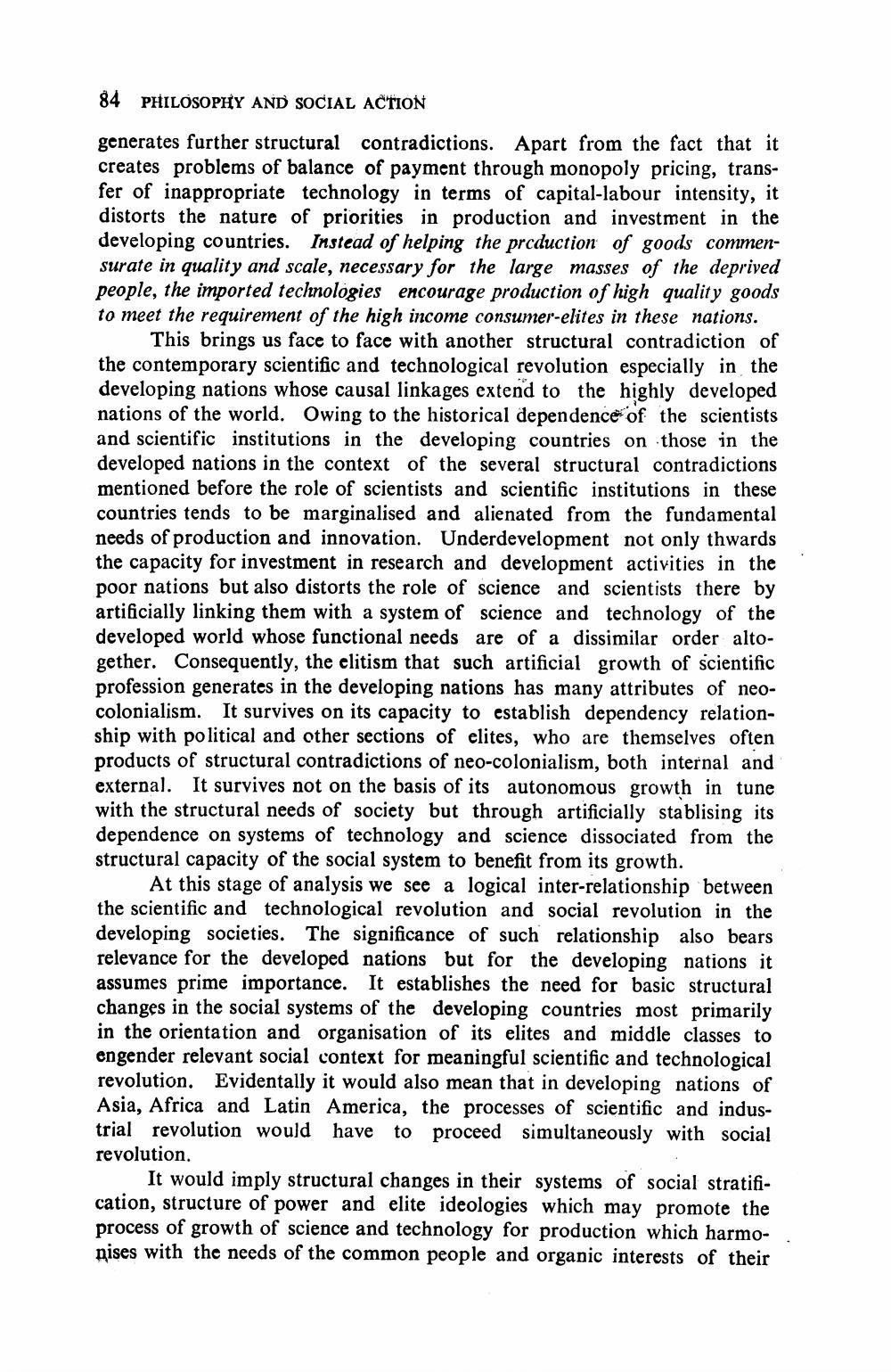Book Title: Social Contents Of Scientific And Technological Revolution Author(s): Yogendra Singh Publisher: Yogendra Singh View full book textPage 4
________________ 84 PHILOSOPHY AND SOCIAL ACTION generates further structural contradictions. Apart from the fact that it creates problems of balance of payment through monopoly pricing, transfer of inappropriate technology in terms of capital-labour intensity, it distorts the nature of priorities in production and investment in the developing countries. Instead of helping the prcduction of goods commensurate in quality and scale, necessary for the large masses of the deprived people, the imported technologies encourage production of high quality goods to meet the requirement of the high income consumer-elites in these nations. This brings us face to face with another structural contradiction of the contemporary scientific and technological revolution especially in the developing nations whose causal linkages extend to the highly developed nations of the world. Owing to the historical dependence of the scientists and scientific institutions in the developing countries on those in the developed nations in the context of the several structural contradictions mentioned before the role of scientists and scientific institutions in these countries tends to be marginalised and alienated from the fundamental needs of production and innovation. Underdevelopment not only thwards the capacity for investment in research and development activities in the poor nations but also distorts the role of science and scientists there by artificially linking them with a system of science and technology of the developed world whose functional needs are of a dissimilar order altogether. Consequently, the elitism that such artificial growth of scientific profession generates in the developing nations has many attributes of neocolonialism. It survives on its capacity to establish dependency relationship with political and other sections of elites, who are themselves often products of structural contradictions of neo-colonialism, both internal and external. It survives not on the basis of its autonomous growth in tune with the structural needs of society but through artificially stablising its dependence on systems of technology and science dissociated from the structural capacity of the social system to benefit from its growth. At this stage of analysis we see a logical inter-relationship between the scientific and technological revolution and social revolution in the developing societies. The significance of such relationship also bears relevance for the developed nations but for the developing nations it assumes prime importance. It establishes the need for basic structural changes in the social systems of the developing countries most primarily in the orientation and organisation of its elites and middle classes to engender relevant social context for meaningful scientific and technological revolution. Evidentally it would also mean that in developing nations of Asia, Africa and Latin America, the processes of scientific and industrial revolution would have to proceed simultaneously with social revolution. It would imply structural changes in their systems of social stratification, structure of power and elite ideologies which may promote the process of growth of science and technology for production which harmonises with the needs of the common people and organic interests of theirPage Navigation
1 2 3 4 5
